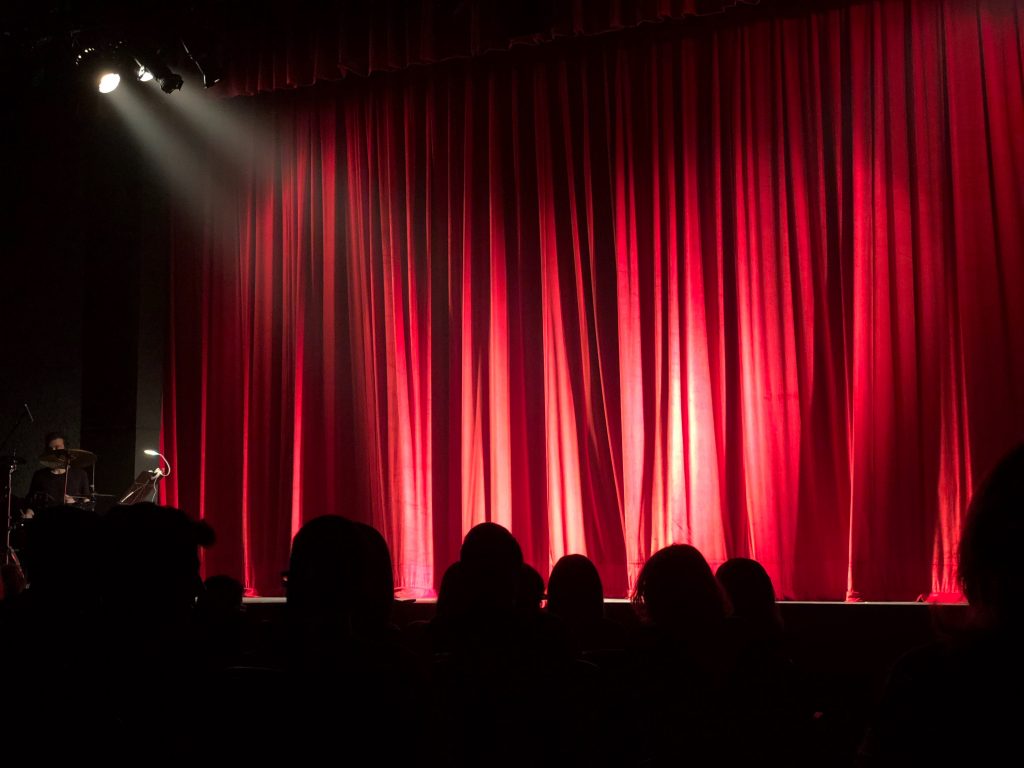Since taking over as the Shubert Theatre’s executive director in mid-March, Anthony McDonald has hit the ground running. When he’s not managing logistics for the “new normal” when live audiences will return to the theater or getting to know local performers and arts leaders, he’s crafting his vision for the 100-plus-year-old Shubert – one that’s more inclusive, diverse and accessible than ever before.
McDonald’s background is largely in theater management. Most recently, he worked with the Nederlander Producing Co. of America at both the Minskoff Theatre and the Gershwin Theatre, home to Disney’s The Lion King and Wicked, respectively. He has served as general manager, general management consultant, and company manager for various Broadway productions.
He brings a unique perspective to his role at the Shubert, and recently took some time to discuss his vision for the future.
Q: What drew you to a career in theater?
A: Theater has been a part of my life now since about sixth grade. What drew me to this world is really just my love for the art. I grew up performing and around all the different forms of the arts – vocal, instrumental, dance, and of course theater.
I also had really supportive parents who somewhat steered me, I would say, more into the business side of theater when I went to undergrad at Howard University. At the end of the day, though, of course I don’t mind; I have no complaints. I love what I do, and having this platform now, I really look forward to just making some positive change in the community.
Q: What are some of your personal favorite shows to see live?
A: I would say I have three favorite Broadway shows, for sure. Starting with the very first show I ever saw, which was Phantom of the Opera. My parents took me to see that show in sixth grade and that’s when I caught the bug, as we say. And then I would say my next two favorite shows are by the same artist, Lin-Manuel Miranda, and those would be In the Heights and Hamilton.
All three of these shows I love for different reasons, whether it is the spectacle, the show, the voices of the actors, the style of dance, including elements of hip-hop into the lyrics – they all are fun to watch and definitely leave an impression.
 Q: What excites you most about your new role at the Shubert?
Q: What excites you most about your new role at the Shubert?
A: What excites me about the job and this position is a sheer matter of opportunity. We have to grow our audience base and really shake up how we’re perceived in the community. I know we’ve probably been seen by some as a place that may only cater to a small demographic of this community. And especially when you look at a lot of our past programming, it’s been really Broadway-centric. And even though I’m coming from the world of Broadway, I also know that Broadway isn’t always something that connects with everyone.
There’s so much more out there that we can also present and bring to our theater. As an organization we realize that we have to intentionally begin to shift our programming model in order to gain the attention of the whole community in New Haven. And it doesn’t mean we’re going stop bringing our Broadway shows, but it means we’re going to expand our programming and make sure that we bring more diverse, more culturally specific programming to our stage and, subsequently, to the community.
We as an organization understand that we can do better, we can be better. From the top down, everyone seems to understand that if we don’t begin to really open up our doors and expand our audience base, and also just expand what we’re known for doing, then we may not be here 10 or 20 years from now. We’ve got to make sure that [everyone in the community] knows that we exist and wants to come into our doors, wants to come and support us because of what we’re bringing to that stage.
Q: How has the theater adapted during the pandemic?
A: We did a lot more virtual programming than we ever probably have done before. We also did a series where we were getting local artists, more so the music genre, and giving them a platform to once again perform for our audience. I would say moving forward, when it comes to our programming side, we are now definitely gearing back up to have a live audience once more.
Outside of programming, we’re trying to also figure out ways to try to give back to the community [such as hosting recent COVID-19 pop-up vaccination clinics]. For me, it’s honestly just trying to figure out what else can we do as an organization that can connect with this community that doesn’t always have to be some form of entertainment.
Something that I definitely do want to explore in the future is to see how we can make our theater more accessible to the community, whether it’s from a socioeconomic standpoint or it’s an able-body accessibility kind of issue, whether someone has pre-existing conditions now and doesn’t necessarily want to take that chance of coming back into an audience or into a crowd. What else can we do to offer them an opportunity to still experience the magic of what we do? I don’t like the idea of just saying, ‘No, sorry, you can’t come.’ That’s not okay.
Q: What’s a typical work day like for you?
A: How I start my day when I head to the office is usually driving in the car, because I’m actually currently in Stamford. So it’s driving up 95, listening to Joel Osteen on XM radio and kind of starting my day in a positive way. However, one day can consist of back-to-back meetings with senior leadership, to my staff, to speaking with my counterparts in the state, the other performing arts center leaders. And as I’m relatively new, I’m still meeting artists and other leaders within the community as well. I could be working on how we roll out our season announcement, or speaking with our amazing grant writer.
Every day is a little bit different and poses different challenges but, thankfully, I really enjoy most of what I’m doing and I really have no complaints. Everything is right now kind of just geared towards [getting ready to have live audiences again]. Preparing, rehiring a staff now to be able to be ready for that moment where we can finally see people smiling and excited and jittery from the fact that it’s been probably a year and a half since they’ve been able to sit in a theater and experience something live.
Q: What are you looking forward to about working in New Haven?
A: There are quite a few things that I’m looking forward to. One of them is supporting my new friend, Shelley [Quiala], who’s the executive director at the International Festival of Arts & Ideas, in addition to my other new friend, Jacob [Padron], the artistic director at Long Wharf Theatre. I heard a lot of great things about Long Wharf before I even got to new Haven, so I’m really now looking forward to seeing the magic that he creates on that stage.
The entire theater community in New Haven has begun a transformation. It’s an interesting time to be, as one would say, alive in New Haven – with our institutions, like mine and Long Wharf and Arts & Ideas, having all this new blood, all these new fresh ideas. It’s a cool time to be here and to just be a part of that wave.
Q: What are your goals for the Shubert, this year and beyond?
A: My hope for the Shubert Theatre is that we find a way to make our entire community feel welcomed, seen, heard, and appreciated. It’s making sure that we are always inviting everyone to see all of our shows, and not making any assumptions on what may interest someone. It also then means having some intentionality in our programming, making sure we’re not only presenting a diverse set of productions – dance, comedy, music, theater – but, within those worlds, we’re also finding diverse talent.
I also want to find ways to help our community-based artists gain access to our stage. If I could find a way to help subsidize the costs, to allow them to showcase their work on our stage more often, then we open up ourselves to expanding our audience base and expanding the potential possibilities that may not have always been fully realized or explored before. Without community support and generosity, we would not have been able to sustain ourselves for over 100 years now, so now I just want to make sure we find a way to inspire, invite and partner with the next generation so that we will be around for another 100 years.
Photographed by Stan Godlewski








More Stories
Wadsworth Atheneum Museum of Art: (Un)Settled Art Exhibition Moves Beyond Classic Landscapes
On Stage and Off, With Photographer James Meehan
FALL ARTS PREVIEW